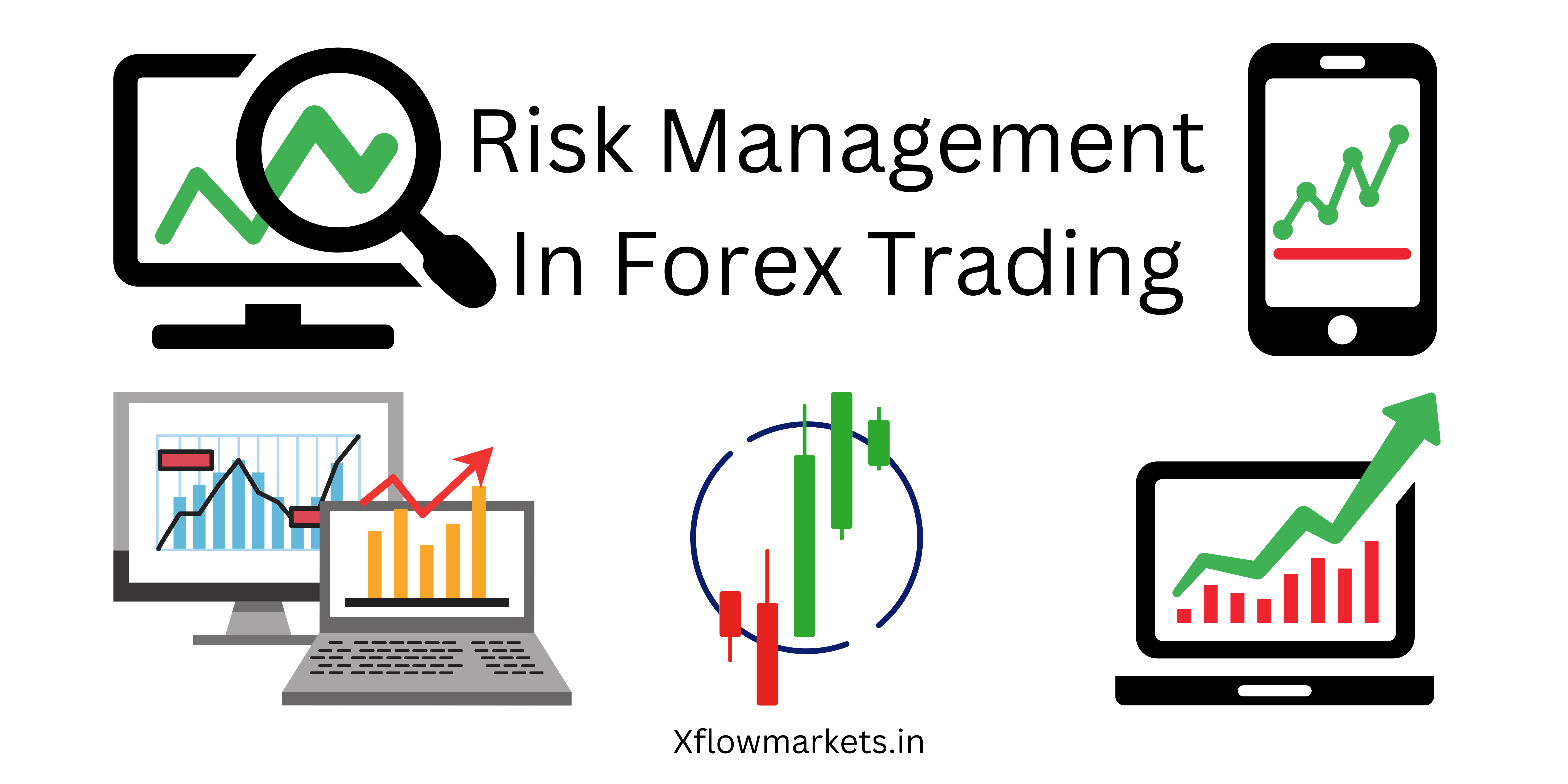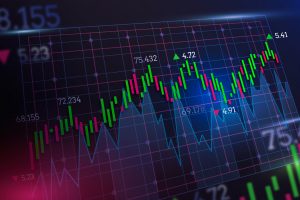Request A Call Back
Register Real Account
Best Forex Trading Risk Management Strategies to Ensure 100% Fund Safety
By XFlow Markets Team Wednesday, Jan 18, 2023 |

Risk management is of utmost importance to be a successful trader and make money online. The forex market is highly volatile and provides a plethora of opportunities for profit, but this also comes with certain risks.
Most Forex traders think that making money online through forex trading is fast and easy. However, it takes time lot of time, dedication, commitment, and patience, if you want to be successful and profitable in the forex markets in the long run.
Learn and understand all the risks involved in Forex Trading, and discover how to manage them. This will help you to make wise decisions and make a fortune.
Every time a trader initiates a trade, there are two potential scenarios, it can move in the intended direction or against it. Every day, traders lose money not because they are unskilled but because of poor risk management strategies.
Hence it is essential to have a good understanding of risks and how to manage them. These two skills are very important for all traders.
What is Forex Risk Management?
Forex Risk management lets the trader implement a set of rules and measures to ensure that any negative impact of forex trade is manageable. An effective strategy requires proper planning from the outset.
Therefore it’s essential to have a risk management plan in place before anyone actually starts trading.
Before we delve into risk management strategies, it is vital to understand what are the different types of risk an FX trader faces.
Different Types Of Risks involved in Forex Trading
Every trading comes with certain associated risks. Now as efficient traders, it is our responsibility to understand the risks and what causes it. Here are some types of risks a currency trader might face:
-
Currency Risk

This risk is associated with the fluctuation of currency prices, making it more or less expensive to buy foreign assets.
-
Interest Rate Risk
This is a risk related to the sudden increase or decrease of interest rates, which affects volatility. Interest rate changes affect Forex prices because the level of spending and investment across an economy will increase or decrease, beginning with the direction of the rate change.
-
Liquidity Risk
It is the liquidity risk that you can’t buy or sell an asset quickly enough to prevent a loss. Depending on the currency and government policies around foreign exchange, even though forex is a liquid market, there can be periods of illiquidity.
-
Leverage Risk
It is the risk of magnified losses when trading on margin. As the initial outlay is smaller than the value of FX trade, it’s easy to forget the amount of capital you are putting at risk.
How to Manage Risk in Forex Trading?
STEP 1: Understand the Forex Market
Foreign Exchange is driven by the forces of supply and demand. The forex market is made up of currencies from around the globe, such as GBP, USD, JPY, AUD, CHF, and ZAR. In Forex trading, the trader has to buy one asset using the currency, and the market price tells you how much currency one needs to spend in order to buy another.
The first currency is called the base currency, and the second currency is called quote currency in a forex pair quotation. The price displayed on a chart will always be the quote currency – it represents the amount of the quote currency one needs to spend in order to purchase one unit of the base currency.

There are three different types of Forex Market:
Spot Market: The physical exchange of a currency pair takes place at the exact point the trade is settled.
Forward Market: A contract is agreed to buy or sell a set amount of currency at a specified price, at a set date in the future, or within a range of future dates.
Futures Market: A contract is agreed to buy or sell a set amount of currency at a set price and date in the future. A futures contract is a legal binding.
STEP 2: Get a grasp on Leverage
When the trader speculates on forex price movements with CFDs, that’s when the trader will be trading on leverage. This enables the trader to get full market exposure from a small initial deposit – Known as Margin.
While trading on leverage has its benefits, there are also potential downsides – such as the possibility of magnified losses.
STEP 3: Build a good trading plan
A trading plan is your personal decision-making tool. This helps you maintain discipline in the volatile forex market. This plan will make your Forex trading experience much easier and help you answer the questions like what, when, why, and how much to trade. A trading diary is another tool to keep a record of everything that happens when you trade, from entry to exit points and your emotional state at the time.
STEP 4: Set a risk-reward ratio
Your Forex trading plan consists risk-reward ratio to quantify the worth of trade. In every trade, the risk you take with your capital should be worthwhile. Ultimately, your profit should outweigh your losses.

STEP 4: Manage Your Emotions
Volatility in the Forex market can lead to emotional distress. One of the key factors that affect the success of every trade is you. If your feelings get in the way of your decision-making, it could be detrimental to your trades. Emotions such as Temptation, fear, greed, doubt, and anxiety could lure you into trade or cloud your judgment.
STEP 5: Keep an eye on news and events
Making predictions about the price movements of currency pairs can be difficult, as there are many factors that could cause the market to fluctuate. To make sure you’re not caught off guard, keep an eye on Central Bank decisions and announcements, political news, and market sentiment.
STEP 6: Start with a Demo Account
Create your own demo account, which recreates the experience of real trading as closely as possible. This will help you get a feel for how the forex market works. There is no risk of losing your money – which means you can trade with confidence in a risk-free environment.
FAQs
Q. What are the types of risks in Forex Trading?
Answer : The three types of foreign exchange risk include transaction risk, economic risk and translation risk.
Q. What is the best risk management strategy?
Answer: Building a good trading plan is a great risk management strategy in Forex trading. And of course, sticking by your plan is the best strategy!
Q. Why is forex high risk?
Answer: The reason retail forex trading is generally considered a high-risk investment is that its primary appeal is the ability to invest with margin. But with proper care and a good, supportive broker, you can achieve great returns with low risk.
Q. What is the safest way to trade forex?
Answer: The safest way to trade forex is by making calculated, low-risk trades. This is not a single day solution. Only time, experience and a lot of patience will get you to that stage. The market is very alive, and so should your zeal to learn about it be. Make sure that you learn at least one new thing everyday and soon enough you will automatically be able to make safe and stable decisions about your portfolio.
Q. Who controls the Forex market?
Answer: The market is decentralized and no single authority controls it.
This was the article about risk management in Forex Trading. We hope that you found the article helpful.
Kindly share it with your friends, and stay tuned for more articles.
XFlow Markets Team
XFlow Markets is one of the leading brokerage firm in the trading industry with vast number of clientele followers. We are ranked as the top most firm with 9 years of experience along with top-notch trading services. We widely trade in Forex, Indices, and Commodities.
Related News & Updates
Federal Reserve Set for Potential Rate Cut; Market Awaits Key Insights from Updated Projections and Powell’s Remarks

The Federal Reserve is expected to lower the policy rate after its September meeting, but the size of the cut remains uncertain. Along with the rate decision, the Fed will Continue reading
**Critical Jobs Data in Focus: NFP Report to Shape Fed’s Next Moves Amid Slowing Labor Market**

Today’s Non-Farm Payrolls (NFP) report, set to be released on September 6, 2024, is expected to play a pivotal role in determining the Federal Reserve’s next moves on interest rates. Continue reading
XFlow Markets provides an entirely transparent access to the FOREX Market through two powerful trading platforms with excellent execution speed, a 24/5 client support system with no dealing desk involvement.
-
About
-
Trading
-
Promotion
Other
© 2024 XFlow Markets, All rights reserved.
Risk Warning: Leveraged trading in foreign currency contracts or other off-exchange products on margin carries a high level of risk and may not be suitable for everyone. We advise you to carefully consider whether trading is appropriate for you in light of your personal circumstances.
You may lose more than you invest. Information on this website is general in nature. We recommend that you seek independent financial advice and ensure you fully understand the risks involved before trading. Trading through an online platform carries additional risks.
XFlow Markets INC is incorporated in Saint Lucia with registration no. 2023/C088 governed by the Companies Act, Cap 13.01 of the revised laws of Saint Lucia.
XFlow Markets does not offer Contracts for Difference to residents of certain jurisdictions including the Belgium, Iran, Canada, North Korea, the USA, Cuba, Syria and FATF Black Listed Countries.
Telephone number: UAE: +971 43304431 Working hours: 7:00 AM - 5:00 PM (GMT+0)

